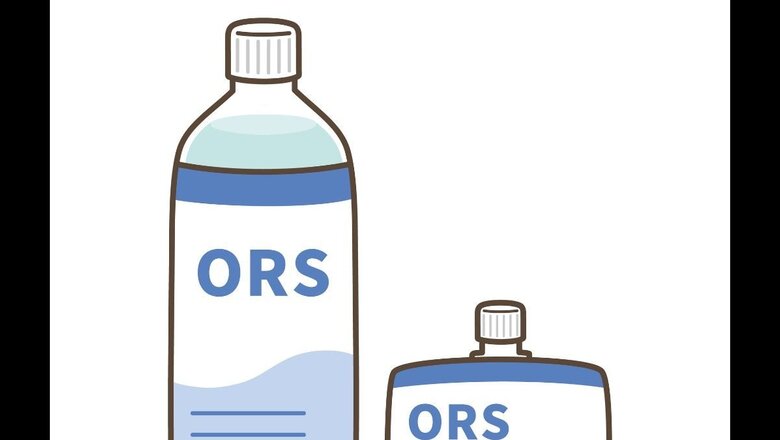
views
Healthcare providers in developing countries, despite being aware of the life-saving benefits of Oral Rehydration Salts (ORS) for treating childhood diarrhoea, often refrain from prescribing them, a study has found.
The latest study shows that 42 per cent of the times, doctors don’t prescribe enough ORS because they think patients don’t want it, even though most patients actually prefer it.
ORS is a life-saving combination of four constituents — sodium chloride, trisodium citrate, potassium chloride and glucose — which help replenish the body’s fluid levels.
A recent study published in the journal Science delves into this discrepancy, uncovering a surprising factor — the assumption by healthcare providers that patients are uninterested in ORS — shedding light on a critical gap between knowledge and practice in healthcare delivery.
According to the study titled “What drives poor quality of care for child diarrhea? Experimental evidence from India”, diarrhoea is the leading cause of death in children, with nearly five lakh young lives lost to diarrhoea each year.
“Almost all these lives could be saved with a low-cost and widely available treatment: oral rehydration salts (ORS). However, at present, nearly half of the diarrhoea cases around the world do not receive ORS. Millions of young lives could be saved if we can find ways to increase ORS use.”
The study has been authored by five researchers from institutions in the US and India, including RAND Corporation (US), Sanford School of Public Policy, Duke University, Indian Institute of Management (IIM)-Bangalore and Sol Price School of Public Policy.
‘Actors’ helped collect data
The novel study utilised “actors” who visited doctors and pharmacies in 253 small and mid-sized towns across two states, seeking treatment for their (fictional) children suffering from either moderate or severe diarrhoea.
“To measure the effect of perceived patient preferences, we had standardised patients (actors trained to act as patients) make unannounced visits where they presented a case of diarrhoea for their 2-year-old child, and we randomly assigned whether they expressed a preference for ORS, a preference for antibiotics, or no preference.”
More than 2,000 providers across 253 medium-sized towns in the Indian states of Karnataka and Bihar participated in the study.
Surprisingly, the study reveals a 42 per cent under-prescription of ORS attributed to doctors’ perceptions of patient preferences.
Researchers found that when patients expressed their preference for ORS, the prescriptions of ORS increased by 27 percentage points compared with no preference. “We show that this is mainly because providers think only 18 per cent of their patients want ORS on average when, in reality, ORS was the most preferred treatment reported by patients in household surveys,” the study said.
It also found that eliminating financial incentives to sell more lucrative medicines had no effect on average but did increase ORS prescribing at pharmacies by nine percentage points.
“By combining these results with the prevalence of each barrier estimated through provider and household surveys, we estimate that provider misperceptions that patients do not want ORS explain 42 per cent of under-prescribing, whereas stock-outs and financial incentives explain only six and five per cent, respectively.”
Surprising findings
Medical experts are surprised by the study’s findings and call them “concerning”.
According to Dr Akhileshwar Narayan Chowdhury, consultant, paediatrics and neonatology at Narayana Hospital, Howrah, “diarrhoea is indeed the leading cause of death in children, and the fact that nearly 50 per cent of children with diarrhoea do not receive ORS is alarming”.
“The possible reasons why doctors are not prescribing ORS more often may be a lack of awareness or knowledge among doctors about the importance of ORS in treating diarrhoea. Inadequate training or outdated medical practices could lead to underutilising this life-saving intervention.”
Chowdhury added that there could be challenges related to access and availability. “While ORS is considered a low-cost treatment, disparities in healthcare infrastructure and distribution systems may hinder its accessibility, particularly in rural or remote areas where healthcare facilities are limited.”


















Comments
0 comment